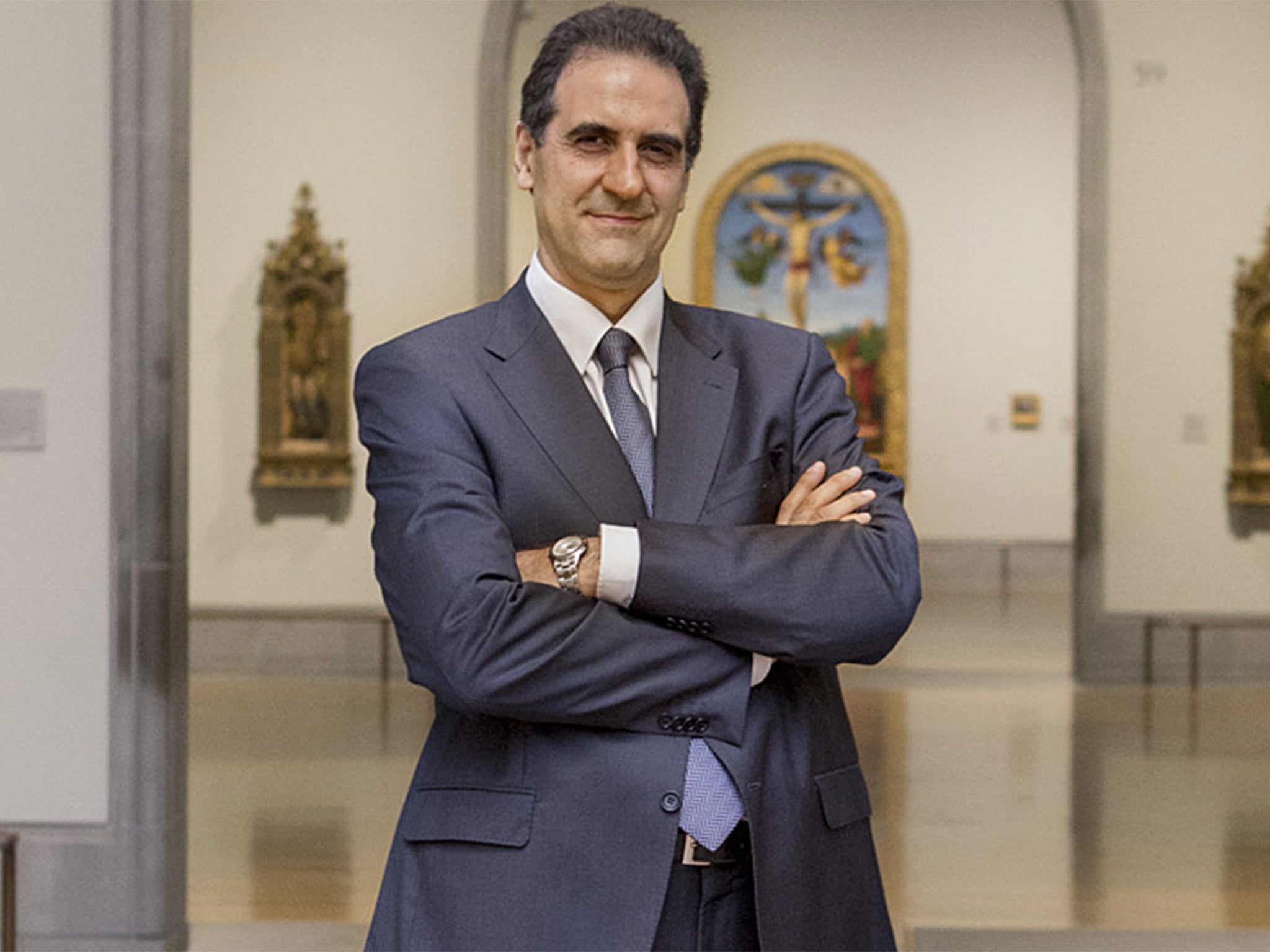Tate and National Gallery risk war as 20-year-old accord on modern acquisitions ends
New National Gallery head reveals he is pushing to rip up his organisation’s agreement with the Tate

So far, it is claimed, the discussions have been “friendly”. But if talks between the National Gallery and the Tate break down, it could open the way for one of the art world’s most controversial border wars.
The dynamic new head of the National Gallery has revealed he is pushing to rip up his organisation’s 20-year-old agreement with the Tate, under which the National Gallery acquires works up to around 1900 and the Tate gets everything from the start of the 20th century onwards.
Gabriele Finaldi wants to combine an expansion of the National Gallery’s physical space with what risks being seen as an incursion into Tate “territory” – acquisitions going as far into the 20th century as the Second World War.
Announcing his intentions in The Art Newspaper, Mr Finaldi, 50, said: “There is an opportunity to think about the scope of the collection. As time moves on, 1900 seems increasingly remote and less related to how we think about art history.
“In artistic terms, nothing very special happens in 1900, but the 1880s and 90s are a remarkably fertile period that push forward new modes of expression, with Cubism very soon afterwards. It is slightly frustrating to reach 1900 and then not go on.
“We could think of moving towards the Second World War and potentially collecting pictures from the 1930s, although this is something we would want to discuss with Tate.”
Stressing that the talks were “friendly”, Mr Finaldi, regarded in the art world as a man of considerable charm, added: “We are having an interesting discussion about how our collections meet.”
If nothing else, Mr Finaldi’s remarks will confirm a reputation for dynamism, which led to him being hailed as the perfect appointment when he took over as director of the National Gallery last year.
The London-born, ex-Dulwich College pupil had spent 13 years as the deputy director for collections and research of Madrid’s Prado Museum, and was credited with helping to rejuvenate the institution.
He worked at the National Gallery between 1992 and 2002 as the curator responsible for the Spanish collection, which went as far as Goya.
His latest remarks, however, suggest an interest in a later Spanish artist.
“We own one Picasso, a still life, Fruit Dish, Bottle and Violin of 1914, which is on long-term loan to Tate,” he said. “So we do not currently show Picasso. But he is an artist who straddles the end of the 19th century and went through a remarkable series of transformations to become the towering figure of the 20th century. So we should show him. Picasso always had a deep relationship with the kind of art represented in the National Gallery.”
It is possible that Mr Finaldi may be able exploit room for manoeuvre in the 1996 agreement. When it was reaffirmed and extended for a further 10 years in 2009, a statement from the Tate contained the caveat that: “The National Gallery recognises there may be circumstances in which Tate wishes to acquire paintings made in the 19th century if they are by artists more normally associated with the 20th century (eg, Picasso, Matisse).
“Equally, Tate accepts that the National Gallery may wish to acquire works painted in the early 20th century by those artists normally associated with the 19th century (eg, Cézanne, Monet and Renoir) or by artists whose work began in the 19th century (eg Bellows, Sickert, Bonnard).”
A Tate spokesman indicated a willingness to negotiate, saying: “It is not and has never been the case that 1900 is an absolute cut-off date. We are always in discussion about any plans to show work which crosses over into earlier or later periods.”
Join our commenting forum
Join thought-provoking conversations, follow other Independent readers and see their replies
Comments